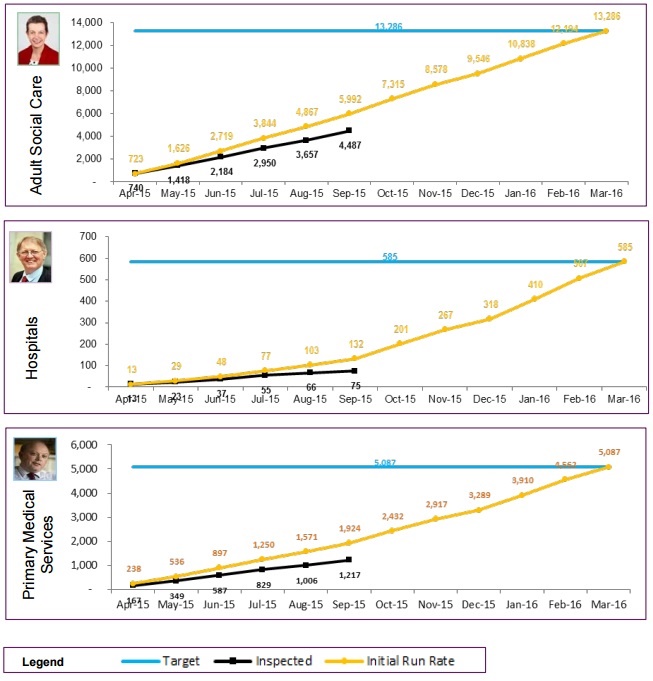21.10.15
CQC fails to catch up on inspection shortfall; more decisions delayed and targets missed
All directorates within the CQC are behind in hitting their inspection targets and, since no decision has been made on budget allocation and fee agreements, the organisation cannot guarantee it will deliver its programme by 2016-17.
The body’s chief executive, David Behan, will tell the CQC’s board meeting tomorrow (22 October) that the successful delivery of the inspection programme relies on the Spending Review, budget allocation and a final agreement on fees for the next financial year.
But none of these important decisions have yet been made, meaning discussions about the 2016-17 programme will be deferred until the three issues are clear.
Behan also said that, undoubtedly, there will be implications to the programme delivery as a result of the CQC being asked to model 25% and 40% cuts ahead of the chancellor’s Spending Review.
However, in the organisation’s board agenda, Behan said that plans are already in place across each of the three inspection directorates to address an improvement in delivering the programme and committing to the business plan.
He added that, currently, the CQC expects the NHS acute programme will be delivered on March 2016, with the remaining sectors on June 2016 – but said further planning is needed to help the investigator meet December 2016 targets.
It is currently behind its trajectories to rate all adult social care and GPs and out of hours services by 30 September of next year.
“The time it has taken to both recruit the required numbers of inspectors and to ensure they are fully trained to conduct inspections, and the lower than expected level of productivity required as all inspectors get up to ‘full speed’ in delivering our new approach, has also contributed to the current position,” he says in the board papers.
 Click on the image to enlarge it.
Click on the image to enlarge it.
Its current progress follows on from previous failing recorded in September, where the investigator revealed that it would not be able to recover its performance levels if it continued to fall behind inspection and productivity targets.
Although figures were already slumping then, data collected until 4 October showed that there had been no overall change in the percentage of inspections completed compared to target for adult social care, hospitals and primary medical services.
As a result, no progress has been made to catch up on the shortfall of completed inspections.
Despite this, 59% of final reports were published within 50 working days, indicating an improvement of 6 percentage points compared to August given the CQC’s new approach to inspections.
The organisation is also set to agree on a new approach to engaging with the public and responding to concerns brought forth by whistleblowers.
Part of this will include refining its communication of why it wants people to contact the body and what it does with that information in order to manage people’s expectation of the CQC.